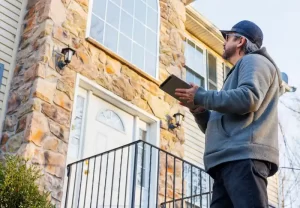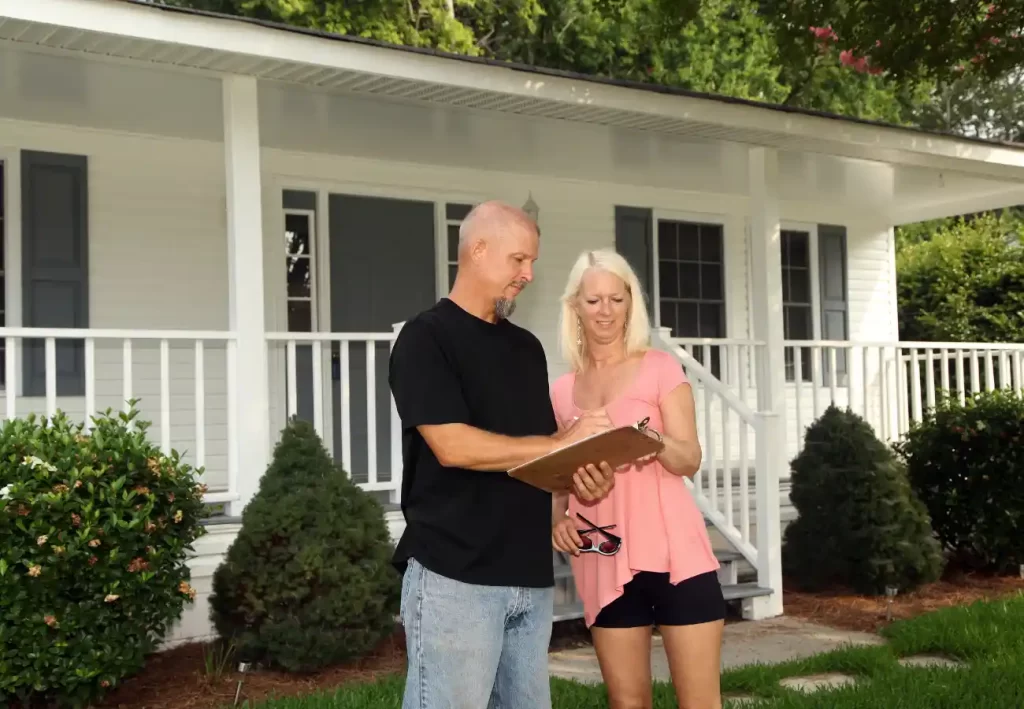Introduction
A pre-purchase building inspection is an essential part of buying a property. It involves examining the condition of a property before you buy it, allowing you to discover any hidden problems that may not be obvious during a casual visit. This inspection usually looks at various parts of the property, such as the foundation, walls, roof, plumbing, and other structural elements.
Knowing why pre-purchase building inspections are important can help you avoid unexpected repair expenses and make sure you’re making a wise investment. You’ll gain understanding of potential issues that could impact the property’s value or safety.
In this article, you’ll learn:
How to hire a licensed and insured inspector
The importance of understanding the inspection scope
Benefits of attending the inspection as a buyer
How to review the detailed inspection report carefully
Recognising inspection limitations and considering further investigation
Timing considerations for scheduling your inspection appointment
Preparing your property for accessibility during inspections
The advantages of fixing known issues before your scheduled inspection
Cost considerations for pre-purchase building inspections
These 10 essential tips will guide you through a successful pre-purchase building inspection, ensuring you make informed decisions throughout your property-buying journey.
One aspect that should not be overlooked during your pre-purchase building inspection is pool safety, especially if the property has a swimming pool. A pool safety inspection is essential to ensure that the pool area complies with safety regulations and does not pose any hazards.
1. Hire a Licensed and Insured Inspector
Engaging a licensed inspector is crucial for your pre-purchase building inspection. A qualified professional ensures the assessment is thorough and accurate.
Verifying the credentials and experience of potential inspectors involves:
Checking for building inspection licence.
Confirming they are an insured inspector.
Reviewing their track record and client testimonials.
Hiring a licensed and insured professional gives you confidence in the inspection results, facilitating informed decisions about your property investment.
2. Understand the Inspection Scope
Understanding the full scope of a pre-purchase building inspection is crucial for making informed decisions. An inspection typically covers various aspects, both interior and exterior:
Foundation: Evaluates the stability and integrity of the property’s foundation.
Roofing: Checks for issues like leaks, missing shingles, or water damage.
Plumbing Systems: Assesses the condition of pipes, drains, and fixtures.
Other areas include electrical systems, heating and cooling systems, walls, windows, doors, and structural elements such as beams and columns.
Visual inspections are standard but may miss hidden issues. Comprehensive inspections use advanced methods like thermal imaging to detect moisture or insulation problems and moisture testing to identify potential water infiltration. These techniques provide a more thorough assessment, ensuring you don’t overlook critical issues that could affect your investment.
3. Attend the Inspection as a Buyer
Buyer participation during the inspection process offers several advantages. Being present allows you to gain firsthand knowledge about potential problems with the property. This insight can be invaluable, as it enables you to see issues directly and understand their severity.
Direct inspector interaction is another benefit. By attending the inspection, you can ask questions in real-time and get immediate answers from the inspector. This direct communication helps clarify any concerns and ensures that you fully comprehend the findings.
Understanding findings in real-time also aids in making more informed decisions. You can assess the implications of identified issues on your own terms, allowing for better negotiation power or reevaluation of your purchase decision based on the property’s condition.
4. Review the Detailed Inspection Report Carefully
Receiving a comprehensive inspection report is crucial. This document should include detailed descriptions and photographs of any identified defects or concerns. These elements provide a clear picture of the property’s condition, allowing you to understand the extent of potential issues.
When conducting an inspection report analysis, focus on:
Descriptions: Ensure that defects are thoroughly described, noting their location and severity.
Photographs: Visual evidence helps verify written descriptions and provides context for each issue.
Interpreting these findings is key to making informed decisions. Prioritise necessary repairs by:
Identifying major structural problems that require immediate attention.
Noting minor issues that can be addressed later or during routine maintenance.
Use this information to negotiate with the seller. For example, significant defects might warrant a price reduction or request for repairs before finalising the purchase. By scrutinising defect documentation, you safeguard your investment and ensure a transparent transaction process.
5. Understand Inspection Limitations and Consider Further Investigation if Necessary
Being aware of the limitations of your pre-purchase building inspection is essential for a complete understanding of its findings. These inspections are limited to areas that are visible and accessible, which means that certain hidden spaces such as wall cavities or underground plumbing systems may not be examined.
Potential hidden problems might go unnoticed during the initial inspection but could still pose significant risks. Here are some examples:
Moisture issues: Often hidden within walls or beneath floors.
Pest infestations: Concealed in hard-to-reach areas.
Structural damage: Not apparent without invasive techniques.
If you have any concerns about these types of issues, it may be necessary to conduct additional specialised investigations after the inspection in order to reveal these hidden problems. Advanced methods such as thermal imaging or moisture testing can offer more detailed information about the condition of the property.
6. Consider Timing When Scheduling Your Inspection Appointment
Timing considerations for inspections are crucial in the property-buying timeline. Conducting a pre-purchase building inspection at the right time can significantly impact your decision-making process.
1. Before Making an Offer
Scheduling the inspection before making an offer allows you to identify any major issues early. By understanding the property’s condition upfront, you can make an informed offer or decide to walk away if necessary.
2. During Cooling-Off Periods
If you’ve already made an offer, utilising the cooling-off period for the inspection is ideal. This period gives you leverage to renegotiate terms or request repairs based on the findings.
Timely inspections provide a strategic advantage. They enable you to address concerns promptly and negotiate more effectively with the seller, ensuring that potential deal-breakers are identified and managed early in the process.
7. Prepare Your Property for Accessibility During Inspections Day
Ensuring that all relevant areas are easily accessible is crucial for a thorough examination by inspectors on the day of your scheduled appointment. Accessibility preparation for inspections involves several key steps:
Clear Roof Spaces and Subfloors: Make sure roof spaces, subfloors, and other hard-to-reach areas are free from clutter. Inspectors need clear access to evaluate these critical components.
Unlock All Doors and Gates: Ensure all doors, gates, and any other barriers are unlocked to allow inspectors easy entry into different sections of the property.
Move Furniture and Storage Items: Relocate furniture or storage items that might block access to walls, windows, or other structural elements. This enables inspectors to perform a comprehensive assessment without obstructions.
Provide Access to Utilities: Make sure areas around utilities like water heaters, electrical panels, and heating and cooling systems are accessible. Inspectors will need to check these systems thoroughly.
By preparing your property adequately, you help ensure no potential problems are overlooked due to restricted access.
8. Fix Known Issues Before Your Scheduled Inspection Appointment If You Can
Fixing known issues in your property before the scheduled inspection can lead to significant benefits. Minor repairs, such as fixing leaks or cosmetic damages, can prevent these issues from raising unnecessary concerns during the assessment.
Benefits of Proactive Pre-Inspection Repairs Consideration
Improved First Impressions: A well-maintained property creates a positive impression on the inspector and potential buyers.
Reduced Negotiation Leverage for Buyers: Addressing minor issues beforehand leaves fewer points for buyers to negotiate repairs or price reductions.
Focused Attention on Major Concerns: By eliminating minor problems, you allow the inspector to concentrate on identifying any significant structural or safety concerns.
Time and Cost Savings: Smaller issues can be addressed more cost-effectively before the inspection, avoiding potential escalations into more costly repairs later.
Taking these steps ensures a smoother and more efficient inspection process while providing clarity on what genuinely needs attention.
9. Cost Considerations When Planning For Pre-Purchase Building Inspections
Evaluating the cost factors associated with inspections is essential when planning for a pre-purchase building inspection. Cost can vary and is influenced by:
Property Size: Larger properties require more time and resources to inspect.
Location: Urban areas often have higher rates than rural regions due to demand and cost of living differences.
While these costs might seem substantial initially, they are often justified by the potential savings from uncovering significant defects early on. Identifying major issues before committing financially can prevent costly repairs down the line, making the investment in a thorough inspection worthwhile.
10. Contingency Clauses in Purchase Agreements Related to Pre-Purchase Building Inspections
Including an inspection contingency clause within purchase agreements is crucial for protecting buyers’ interests. This clause allows you to renegotiate terms or withdraw from the deal based on findings from the pre-purchase building inspection.
Key Benefits:
Protection: Safeguards your investment by ensuring that any significant issues identified during the inspection can be addressed before finalising the purchase.
Negotiation Leverage: Provides a basis for negotiating repairs or price adjustments with the seller.
Flexibility: Offers the option to back out of the transaction without financial penalties if severe defects are discovered.
This contingency ensures you are not locked into purchasing a property with potentially costly hidden problems, making it a vital component of any real estate transaction.
Conclusion
A successful pre-purchase building inspection is a fundamental step in the property-buying process. The insights gained from these inspections go beyond what you can observe during a simple walkthrough. Relying on the expertise of qualified professionals ensures that you are fully informed about the property’s condition.
Professional Expertise: Engaging licensed and experienced inspectors can uncover potential issues that might be overlooked by an untrained eye.
Thorough Assessments: Comprehensive inspections cover both visible and hidden areas, providing a detailed evaluation of the property’s structural integrity.
Informed Decisions: Detailed reports with photographs help prioritise necessary repairs and facilitate negotiations with sellers.
Key takeaway: Investing in a professional pre-purchase building inspection not only safeguards your investment but also provides peace of mind knowing that your future home is sound and secure.
Frequently Asked Questions
A pre-purchase building inspection is a thorough examination of a property’s condition before buying it. It is significant in the property-buying process as it helps identify potential issues, allowing buyers to make informed decisions and negotiate repairs or price adjustments with the seller.
To verify an inspector’s qualifications, check their licensing, insurance, and reviews. Look for inspectors who have demonstrated expertise in conducting comprehensive assessments, ensuring a thorough evaluation of the property.
Attending the inspection allows you to gain firsthand knowledge about any potential problems and ask questions directly to the inspector. This real-time understanding of findings can help you make more informed decisions regarding your purchase.
In the detailed inspection report, look for comprehensive descriptions and photographs of identified defects or concerns. Understanding how to interpret these findings will help you prioritise necessary repairs and negotiate effectively with the seller based on the severity of issues.
Pre-purchase building inspections have limitations, primarily being restricted to visible areas only. Inspectors may not access hidden spaces like wall cavities or underground plumbing systems, meaning potential hidden issues might require further investigation if suspected after the initial assessment.
To prepare your property for an inspection, ensure all relevant areas are easily accessible for thorough examination. Clear out roof spaces, subfloors, and other locations that may be obstructed to prevent overlooking any potential problems during the inspector’s evaluation.
Subscribe To Our Newsletter
Get updates and learn from the best
More To Explore

Common Issues Found by Private Building Inspectors in Adelaide
Investing in property is one of the most significant financial decisions you’ll ever make, and ensuring it’s a sound investment starts with a thorough inspection. Private building inspectors in Adelaide act as your trusted allies, uncovering hidden issues that could impact the safety, value, and longevity of your property. From structural defects and pest infestations

Why Hiring a Residential Building Inspector is Crucial for Homebuyers
Buying a home is a major investment—probably one of the most significant financial decisions of your life. While a property may appear flawless on the surface, hidden defects and structural issues could turn your dream home into a financial nightmare. From foundation cracks to electrical hazards, unnoticed problems can lead to costly repairs down the


